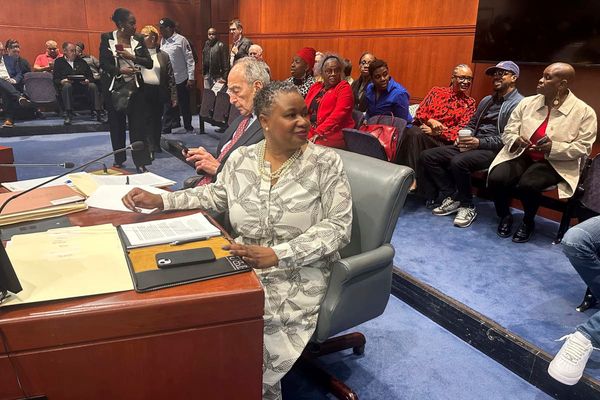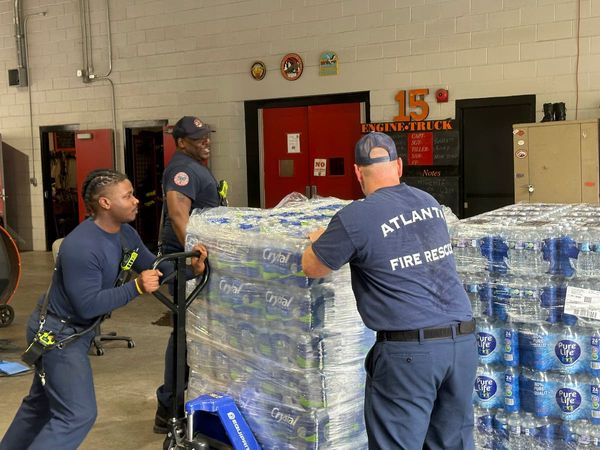
Former Productivity Commission (PC) chair Gary Banks believes the world is flat, according to the prime minister, because he dared to criticise Labor’s Future Made In Australia policy and its heavy interventionism to create new manufacturing industries.
It wasn’t the harshest criticism ever dished out by a prime minister, by any means, but it was certainly not becoming of a national leader.
Labor doesn’t like Gary Banks, the long-time Howard-era inaugural head of the Productivity Commission. Banks is the neoliberal’s neoliberal — especially on industrial relations. Hell, we at Crikey are no big fans of his either. But on manufacturing protectionism, Banks — like all of his successors at the PC up to and including the recently appointed Danielle Wood — and scores of economists are absolutely right: there is no case for such interventionism, and it is likely to come with significant costs to Australians for little benefit.
Calling critics flat-earthers suggests Albanese isn’t much interested in genuinely arguing the case for such interventionism. Perhaps the prime minister was riled by Banks pointing out that just endlessly saying “competition” over and over, which Albanese has been doing, doesn’t make a protectionist policy magically transform into a competition one.
It’s not necessarily the case that being bagged by a succession of economists is going to worry Labor too much — to the extent that ordinary voters are aware of such issues, they’re likely to think making things here is good and any economist (or people like us) criticising it are hopelessly out of touch.
And the Future Made In Australia policy is as much about packaging and presentation as it is about policy. Much of it is combining existing initiatives and spending, and invoking a piece of legislation to wrap it all up with a bow. But the existing initiatives from Labor are already a long list of dodgy investments to encourage manufacturing in areas we don’t need and can’t compete in, like solar panels. Ahead of the next election there’ll likely be a succession of new spending announced as part of Labor’s commitment to making things here. Whether such spending ends up being in marginal seats, especially in Queensland, remains to be seen.
But no matter what the packaging, Labor’s policy is about trying to boost Australia’s area of comparative disadvantage — manufacturing and especially high-tech manufacturing — in contrast to our areas of comparative advantage — extractive industries and services exports like education and tourism.
Despite the constant pleas for handouts and deregulation, the mining industry doesn’t need any government help. Australia is the world’s most successful mining country, and is rated as the most attractive country in the world for mining investment — and has been going back well over a decade.
But our education export sector — in 2019 it generated $37 billion in exports — is struggling. Its clients, foreign students, are seen as a major contributor to the housing crisis, a crisis generated entirely by policymakers rather than universities and the vocational education sector. A government review panel recently proposed to impose a foreign student tax on the sector. And the key domestic funding mechanism for universities, HECS, was broken by the Morrison government with its fee changes intended to punish students taking humanities degrees.
Concerns about HECS are currently in the form of complaints about the high levels of indexation of student debt, with the prime minister promising that something will be done about indexation. Higher education funding requires more than fiddling with indexation, especially if Australia is to continue to grow its education exports by offering globally competitive degrees and research opportunities at our major educational institutions. At the moment, however, both sides of politics seem to view universities, in particular, as somewhere between a festering sore, a milch cow and an ideological threat.
A smart interventionist government would look at ways to guard the comparative advantage of such a sector. Unlike mining, our comparative advantage in education is built not on natural factors and a healthy legal system to protect investors, but on reputation and international relations. As we saw in the pandemic, and when the Chinese regime decided to punish Australia, that advantage can disappear quickly. Exploitation of foreign students by employers, blaming them for the housing crisis, or perceptions of declining degree quality are all major threats to the sector.
And such a government would look to further enhance the competitiveness of an area of comparative advantage, and foster other areas of potential or growing competitive advantage, like financial, legal or health services. Industry and trade ministers routinely point to programs designed to do just that, but they are usually trivial in size compared to the kinds of figure Labor is now throwing around about manufacturing, with multibillion-dollar funds being made available for investors willing to spend up big on making things here.
The world may be round, as Albanese insists. That won’t prevent those billions of dollars from rolling right off it and into a void.
Do you back Albo’s manufacturing plan? Let us know your thoughts by writing to letters@crikey.com.au. Please include your full name to be considered for publication. We reserve the right to edit for length and clarity.







